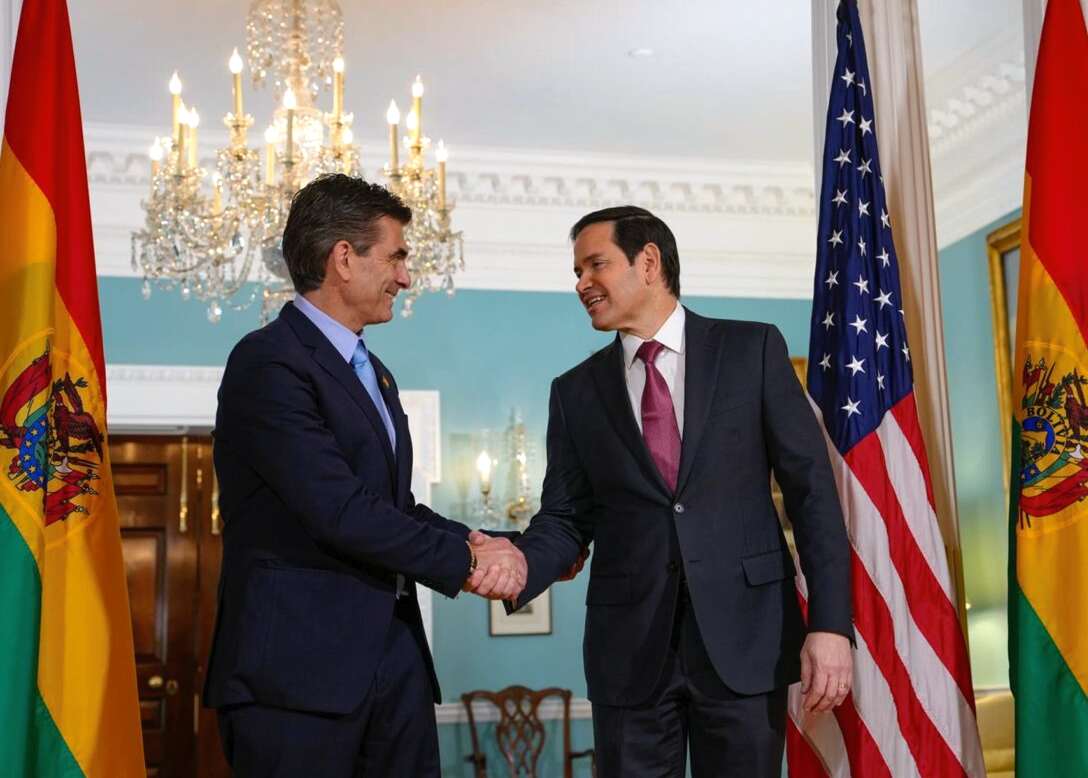After winning four consecutive presidential elections with an absolute majority, the Movement Toward Socialism (MAS) has suffered a severe defeat. More than a simple alternation, this transition marks the end of a twenty-year political cycle of MAS hegemony (2005–2025). The winner of the unprecedented runoff, Rodrigo Paz, will assume the presidency in November.
The process unfolded in two stages. In the first round, a divided MAS emerged seriously weakened, with its electorate dispersed in several directions, while three opposition candidates took the lead. Unexpectedly, Tarija senator Rodrigo Paz (32.4%), son of former president Jaime Paz Zamora, and candidate for the Christian Democratic Party (PDC), took first place. Former president Jorge “Tuto” Quiroga (26.7%) of the Free Alliance also qualified for the runoff. In third place came another opposition figure, Samuel Doria Medina of the Unity Alliance (19.6%). The Legislative Assembly, elected simultaneously, gave a broad majority of seats to these three parties.

Several crises converged to produce this outcome. Socioeconomic decline became evident to the population through fuel shortages, a de facto currency devaluation of more than 100%, and inflationary pressures. The result reflected the exhaustion of the extractivist model due to the gradual depletion of gas reserves without lithium taking over, a worsening fiscal deficit, and an unfavorable environment for the private sector. These conditions eroded the government’s popularity to below 10%, created fertile ground for protest—including among MAS-aligned social movements—and ultimately forced President Luis Arce (MAS) to abandon his re-election bid. His administration failed to deliver on the 2020 campaign promise to restore the prosperity seen under Evo Morales’s governments (2006–2019), which had benefited from the global commodity boom.
To this deterioration was added the MAS’s internal rupture. Its historic leader, former president Evo Morales, suffered a decisive judicial defeat: the Constitutional Court disqualified his candidacy. This same court had allowed his runs in 2014 and 2019, but in 2023, it barred him from competing again after having served two terms. After failing to overturn the ruling, Morales initially threatened to sabotage the election—calling for ballot burning—before shifting tactics late in the campaign to advocate for null votes. This option garnered an unusual 19.9% of ballots, concentrated in rural and Indigenous areas, but carried no institutional representation. Without his support, the candidacies of Senate president Andrónico Rodríguez (8.5%)—Morales’s presumed heir—and of interior minister Eduardo del Castillo (3.1%) collapsed. Consequently, Morales remains the MAS’s only visible leader; while the party has become politically marginal, it remains relevant as a sociopolitical movement.
The runoff, like the first round, saw very high participation (87%). Although both candidates came from the opposition, the contest revealed an old pattern of Bolivia’s electoral geography and sociology. The vote distribution showed stark contrasts: each candidate won comfortably in his respective strongholds, with few areas of close competition.
Paz extended his lead from the first round, winning decisively with 54.9% of the vote. His support came from the western and central departments—especially La Paz and Cochabamba—as well as rural, Indigenous, peasant, mining, and peripheral urban communities. In doing so, he absorbed much of the MAS vote and those who had cast null ballots in the first round. Morales gave no voting directive, and the share of null votes dropped to 4.6%, close to the usual 3%.
Thus, Paz managed to regroup much of the MAS electorate, albeit without formal agreements with the party structure. The territorial and social pattern of his vote aligned with the traditional left-wing base historically associated with the MAS. However, these impressive numbers mask a fragile bond between his candidacy and the popular sectors that used it as a vehicle for political voice and participation. This relationship will now be tested in governance.
Meanwhile, Quiroga consolidated the classic anti-MAS opposition vote (45%) without expanding beyond it. His political coalition, the Free Alliance, prevailed in the prosperous and conservative eastern regions, anchored in Santa Cruz, and among upper- and middle-class urban voters, particularly in departmental capitals. The sociopolitical profile of Alianza Libre mirrored that of the old Nationalist Revolutionary Movement (MNR), Nationalist Democratic Action (ADN), or the Podemos coalition once led by Quiroga in 2005.
Despite the comfortable margin, there were attempts to challenge the legitimacy of the result from the most hardline sectors of Alianza Libre. These quickly faded following the conclusions of international electoral observers and the prompt recognition of Paz’s victory both domestically and abroad.
Now, President-elect Paz faces severe and immediate challenges. The parliamentary arena will likely be the easiest, as he enjoys a legislature open to cooperation and long-term agreements. Foreign policy realignment will also proceed quickly, with a distancing from MAS allies such as Venezuela, Cuba, and Russia. More demanding will be rebuilding institutional integrity to strengthen the rule of law and democratic quality.
However, the most pressing and complex challenges lie in the socioeconomic sphere. The World Bank projects at least two years of recession, and given the high social expectations for quick and low-cost solutions, this creates an extremely difficult equation. The real challenge lies not in technical formulas but in achieving skillful governance that prevents collapse in the face of potential social unrest—unrest that Morales will likely attempt to lead. The outcome will determine not only the success of Rodrigo Paz’s administration but also the fate of Bolivia’s democracy and stability.
*Machine translation, proofread by Ricardo Aceves.













